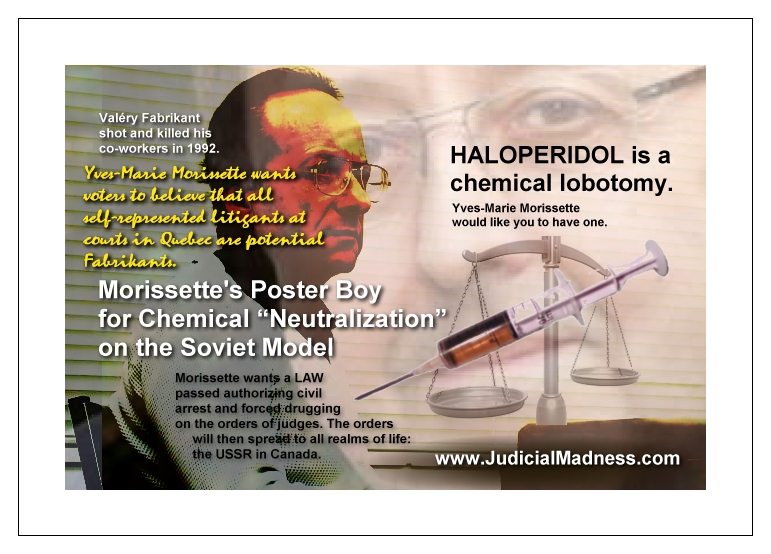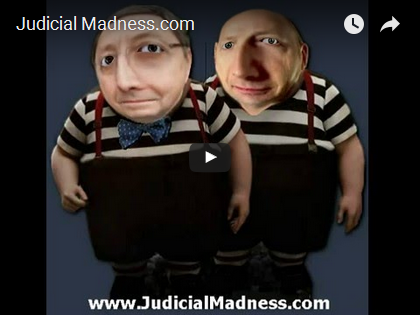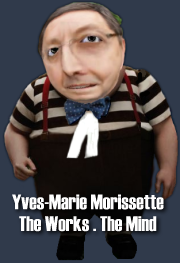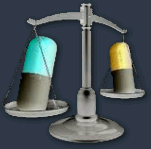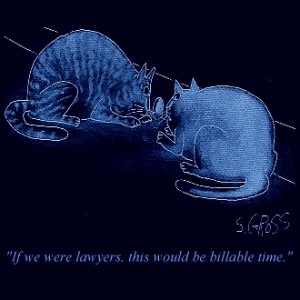Portrait of the Querulous Litigant by Rémi Danylo (L’Obiter)
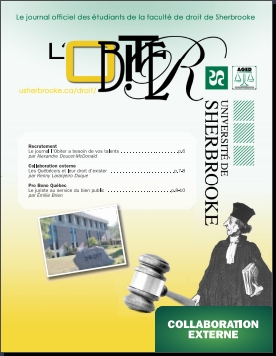
Portrait du plaideur quérulent, Rémi Danylo (L’Obiter). L’Obiter, Le journal des étudiants de la faculté de droit de Sherbrooke
Portrait du plaideur quérulent
Portrait of the Querulous Litigant
by Rémi Danylo
Source: Portrait du plaideur quérulent, Rémi Danylo
L’Obiter, Le journal des étudiants de la faculté de droit de Sherbrooke / Journal of the students of the University of Sherbrooke Law Faculty
Note: I searched in vain for a date, volume or issue number, or an ISSN – there was nothing. Thus, you have the cover above to identify the source. Admin JMad.
Foreword:
Very disappointed in today’s university students. They’re as bad as the mainstream hack reporters: they just regurgitate! Here they are in the prime of life, in an academic environment where the heights of learning should come from critical thinking. Yet, no spark here, no light shed on reality, no desire to question or challenge. This guy will get an “A”, guaranteed.
|
ÉDITORIAL |
EDITORIAL |
|
Portrait du plaideur quérulent |
Portrait of the Querulous Litigant |
|
«Sylvio Langevin réclame la propriété de la planète Terre. Dans un autre dossier entrepris le même jour, il réclame celle des planètes Mercure, Vénus, Jupiter, Saturne et Uranus, ainsi que des quatre grosses lunes de Jupiter1.» C’est sur ces réclamations inhabituelles que le juge Alain Michaud de la Cour supérieure a dû se prononcer dans une décision rendue le 22 février dernier. À défaut d’avoir eu gain de cause dans sa réclamation, cet individu de Sainte-Euphémie s’est dernièrement vu octroyer le titre de « plaideur quérulent ».2 Comme le rapporte La Presse, cette personne aurait entrepris, depuis 2001, au moins 29 recours en Cour supérieure, s’adressant également à la Cour d’appel à 12 reprises et 4 fois à la Cour suprême du Canada.3 Bien que cette histoire paraisse plutôt insolite, le plaideur quérulent demeure présent au sein de notre système judiciaire. Au Québec, certains cas célèbres ont d’ailleurs déjà suscité l’attention. Andy Srougi, un militant de Fathers 4 Justice ainsi que Valéry Fabrikant, auteur de la fusillade de l’Université Concordia en 1992, avaient tous les deux reçu ce statut. Mais au-delà de ces cas bien précis, quel est le portrait général du plaideur quérulent? |
“Sylvio Langevin claims ownership of the planet Earth. In another file undertaken the same day, he claims ownership of the planets Mercury, Venus, Jupiter, Saturn and Uranus, as well as of the four large moons of Jupiter1.”Judge Alain Michaud of Superior Court had to rule on these unusual claims in a decision handed down on February 22nd. Rather than winning his case, this person from Sainte-Euphémie was recently awarded the title of “quarrelsome litigant ”.2 As reported in La Presse, this individual, since 2001, had filed at least 29 recourses in Superior Court, addressed himself to the Court of Appeal 12 times and 4 times at the Supreme Court of Canada.3 Although this history appears rather strange, the querulous litigant remains present in our legal system. In Quebec, certain famous cases have already attracted attention. Andy Srougi, a militant with Fathers4Justice, as well as Valéry Fabrikant, author of the shooting spree at Concordia University in 1992, have both received this status. But beyond these quite specific cases, what is the general portrait of the querulous litigant? |
|
À son article 84, le Règlement de procédure civile de la Cour supérieure donne la définition du «comportement quérulent». Il s’agit du fait d’une personne d’exercer «son droit d’ester en justice de manière excessive ou déraisonnable». L’octroi de ce statut n’est pas une question à prendre à la légère. Les tribunaux agissent avec prudence dans ces dossiers. En effet, la décision d’attribuer ce statut oppose le droit de s’adresser aux tribunaux à celui d’éviter les abus considérables des ressources judiciaires de notre société. Il s’avère primordial de concilier ces deux aspects et de trouver un juste équilibre. Plusieurs jugements énumèrent les principales caractéristiques d’un plaideur quérulent, notamment la décision Barreau du Québec c. Srougi. Un article de l’honorable Yves-Marie Morissette demeure également un incontournable en matière de quérulence.4 « Le justiciable quérulent fait montre d’opiniâtreté et de narcissisme ». Il se représente seul, il se manifeste en demande et ses arguments sont à la limite du rationnel. De plus, il est possible de retrouver plusieurs insultes et injures dans ses procédures. Il ne s’agit là que de certaines caractéristiques répertoriées. Elles ne doivent pas être toutes rencontrées pour déclarer une personne de plaideur quérulent. Il ne s’agit pas de critères. La principale question pour la Cour est de déterminer si la personne exerce son droit d’ester en justice d’une façon excessive ou déraisonnable. Lorsqu’un individu est déclaré de plaideur quérulent, le tribunal peut sévir différemment selon chaque cas d’espèce. L’ordonnance peut être générale ou limitée. Parfois, la personne sera restreinte d’initier des actions contre un seul défendeur bien précis, tandis que dans d’autres situations, cette limitation sera plus globale. |
In its article 84, Rules of Practice of the Superior Court of Québec in Civil Matters gives the definition of “quarrelsome behavior”. Which is the fact that a person exercises “his right to institute legal proceedings in an excessive or unreasonable way”. The conferral of this status is not to be taken lightly. The courts act with prudence in these files. Indeed, the decision to attribute this status puts in opposition the right ot adress the courts with the duty to avoid considerable abuse of the legal resources of our society. It appears to be paramount to reconcile these two aspects and to find a proper balance. A number of judgments list the main characteristics of a querulous litigant, in particular the decision in Barreau of Québec c. Srougi. An article of the honourable Yves-Marie Morissette remains incontrovertible as well with regard to querulousncess.4 “The querulous litigant exhibits obstinacy and narcissism”. He is self-represented, he appears in demand and his arguments are at the limit of the rational. Moreover, it is possible to discover a number of insults and offensive remarks in his procedures. Those are just some of the characteristics catalogued. Not all are required to be met in order to declare a person a querulous litigant. It is not a question of criteria. The main question for the Court is to determine if the person exercises his right to institute legal proceedings in an excessive or unreasonable manner. When an individual is declared a querulous litigant, the court can handle each case differently. The ordinance can be general or limited. Sometimes, the person will be prohibited from initiating actions against a particular defendant, while in other situations, this limitation will be more comprehensive. |
|
Outre l’aspect juridique, il faut noter que le comportement quérulent revêt un aspect véritablement maladif. Cet aspect s’appelle la quérulence. En fait, la quérulence a une dimension à la fois humaine et juridique. Il est donc possible de parler de «symptômes» indicatifs de quérulence. Ces symptômes peuvent permettre de diagnostiquer cette pathologie. Bien que ce déséquilibre ne se retrouve pas dans le Diagnostic and Statistical Manual of Mental Disorders de l’American Psychiatric Association, la documentation scientifique a pris soin de dresser une liste des caractéristiques principales des personnes atteintes. D’un point de vue psychiatrique, la quérulence fait foi d’un délire de revendication. Ainsi, “la quérulence est un trouble de la personnalité, voisin selon les psychiatres de l’hypocondrie et de l’érotomanie. Elle se définit comme une tendance pathologique à rechercher les querelles et à revendiquer, d’une manière hors de proportion avec la cause, la réparation d’un préjudice subi, réel ou imaginaire».5 |
Other than the legal aspect, it must be noted that querulous behavior exhibits a veritably morbid aspect. This aspect is called querulousness [quarrelsomeness]. In fact, querulousness has both a human and a legal dimension. It is thus possible to speak of “symptoms” indicative of querulousness. These symptoms may allow this pathology to be diagnosed. Although this imbalance is not found in the Diagnostic and Statistical Manual of Mental Disorders of the American Psychiatric Association, the scientific documentation has taken care to compile a list of the main characteristics of persons afflicted. From a psychiatric point of view, querulousness is a mania for vindication. Thus, “querulousness is a personality disorder, side by side, according to psychiatrists, with hypocondria and erotomania. It is defined as a pathological tendency to seek out quarrels and to assert, in a manner disproportionate to the cause, reparation for damages suffered, real or imaginary”.5 |
|
Bien que les décisions du style de celle de monsieur Langevin puissent nous faire sourire, le phénomène de la quérulence est réel et intéresse malgré eux plusieurs intervenants du système judiciaire. Une telle histoire est certes cocasse lorsqu’elle est vécue de l’extérieur, il en serait toutefois très différent s’il s’agissait de la partie adverse dans l’un de vos dossiers. Attention, chers étudiants, nous sommes tous appelés à être confrontés à un plaideur quérulent un jour ou l’autre. |
Although decisions [cases] of the type of Mr. Langevin’s can make us smile, the phenomenon of querulousness is real and in spite of themselves [sic], interests a number of interveners in the legal system. A story like that is certainly droll when lived [sic] from the outside, it would however be very different if it concerned the adverse party in one of your files. Attention, dear students, we are all called to be confronted by a querulous litigant one day or the other. |
Note: Emphases added. Moreover, there is no “scientific documentation” proving that self-represented litigants tend to be mentally ill with the renamed Soviet disease of “querulousness”. The kid says Morissette’s article “remains incontrovertible”. How would he know? What research has he done? I think this is a tip of the hat to a superior in the system; I doubt the kid knows what he’s talking about. But here we have a demonstration of a young person, late teens, early 20s, regurgitating nonsense invented by a power monger back around 1984, and cranked up by the same fellow lobbying the legal system incessantly. He’s it. He’s the only so-called “authority” on the subject, and the kid hasn’t noticed that Morissette has no qualifications in psychiatry, and neither have the judges who are presuming to declare people crazy from the bench. The kid doesn’t even know that’s what “querulousness” really means: madness, mental illness, and that Morissette wants to chemically lobotomize people who are labeled and listed by the courts.
1 Langevin (Re), 2012 QCCS 613 (CanLII) au para 1.
2 Langevin (Re), 2012 QCCS 613 (CanLII).
3 Hugo de Grandpré «Il réclame la propriété de la Lune et est déclaré plaideur quérulent» (01 mars 2012) La Presse, en ligne:
< http://www.cyberpresse.ca/actualites/quebec-canada/justice-et-faits-divers/201202/29/01-4501122-il-reclame-la-propriete-de-la-lune-et-est-declare-plaideur-querulent.php >.
4 Yves-Marie Morissette, «Abus de droit, quérulence et parties non représentées» (2003) 49 R.D. McGill 23.
5 «La quérulence: la quéru-quoi?» (01 mars 2012) Justice-en-ligne, en ligne: < http://www.justice-en-ligne.be/article362.html >.
